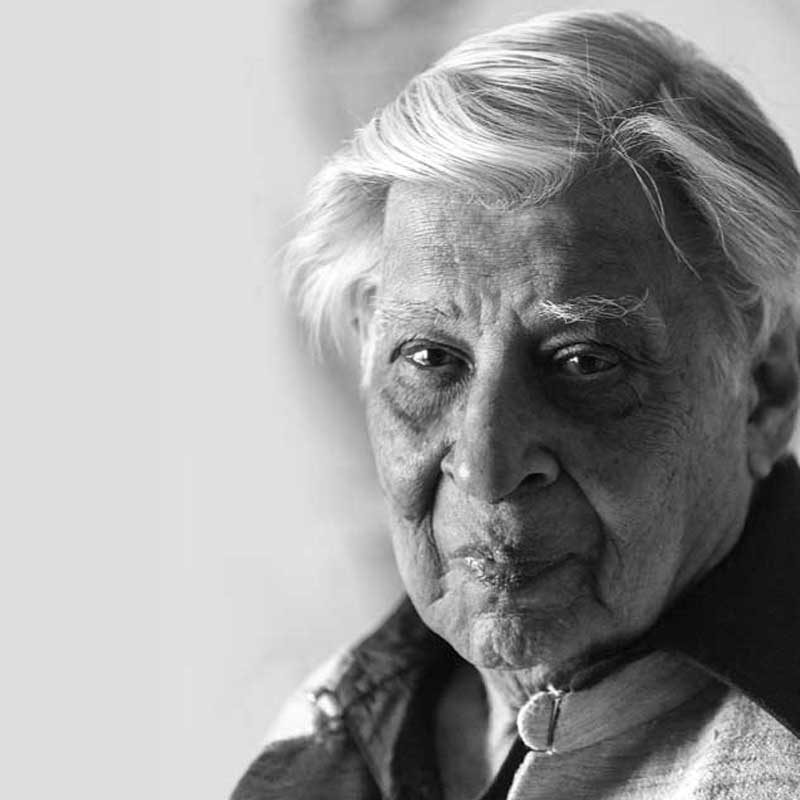
Krishen Khanna was born in Lyallpur, now known as Faisalabad, Pakistan. He attended Imperial Service College in Windsor, England and is largely a self-taught artist. One of the most endeavouring artists of the Progressives Group, Khanna works alternately between narrative and formal concerns. Stylistically his works are aligned with western modernism, but inspired by the occurrences in the world around him.
On his return to Lahore, he apprenticed under Sheikh Ahmed who encouraged the artist to draw from life. His early works include various biblical scenes. The artist’s family shifted to India at the time of partition and Khanna arrived in Bombay in 1948 where he began a career in banking. He got acquainted with the Bombay Progressive Artist’s Group, and in the 50’s his subjects included urban migrants.
In 1953, the artist moved to Madras and was greatly interested in Carnatic music which is evident in his works. In 1961, after completing 14 years, Khanna resigned from his job as a banker in Grindlay’s Bank to become a full time artist. With a Rockefeller fellowship he found his way to Japan in 1962. There he was inspired by the practice of an ancient form of Chinese calligraphy, Sumi-e and Japanese ink paintings and created a body of works with ink on rice paper. In 1964, he returned to New Delhi.
The Bangladesh war in the 1970’s inspired him to create a series of overtly political paintings titled ‘The Game’. His most popular recurring theme in the 80’s were the ‘bandwallahs’ whom Khanna encountered when he was driving out of the Garhi studios in New Delhi. Here, there was a return of subjects from daily life.
Khanna returned to the theme of individual suffering by depicting Christ’s betrayal for an exhibition in 1980. Khanna’s works interpret the social critique of India in the 1970’s for example the portrayal of Christ without a halo to show his humanity over his divinity.
Recognising his immense contribution to Indian Art, the Government of India has bestowed several honours upon him including the Lalit Kala Ratna from the President of India in 2004, the Padma Shri in 1990 and the Padma Bhushan in 2011. Khanna lives and works in New Delhi.